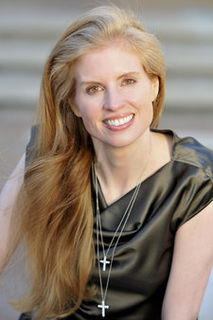A Quote by Henry Hazlitt
The long-run historical tendency of capitalism has not only been to increase real incomes more or less proportionately nearly all along the line, but to benefit the masses even more than the rich.
Related Quotes
At first it was the incomes of corporations, then of rich citizens, then of well-provided widows and opulent workers, and finally the wealth of housemaids and the tips of waitresses. This is all in line with the ability to pay doctrine. The poor, simply because there are more of them, have more ability to pay than the rich.
Having been governor of New Mexico, I know that legislation gets passed to benefit those who have money and influence. Then they buy more money and influence. That's one reason why, as governor, I vetoed more than 750 bills and thousands of line items. I did it to keep crony capitalism away from government.
While under precapitalistic conditions superior men were the masters on whom the masses of the inferior had to attend, under capitalism the more gifted and more able have no means to profit from their superiority other than to serve to the best of their abilities the wishes of the majority of the less gifted.
love is thicker than forget more thinner than recall more seldom than a wave is wet more frequent than to fail it is most mad and moonly and less it shall unbe than all the sea which only is deeper than the sea love is less always than to win less never than alive less bigger than the least begin less littler than forgive it is most sane and sunly and more it cannot die than all the sky which only is higher than the sky
As for man, there is little reason to think that he can in the long run escape the fate of other creatures, and if there is a biological law of flux and reflux, his situation is now a highly perilous one. During ten thousand years his numbers have been on the upgrade in spite of wars, pestilences, and famines. This increase in population has become more and more rapid. Biologically, man has for too long a time been rolling an uninterrupted run of sevens.
Modern medicine has presented us with a Faustian bargain: Our aging bodies can bankrupt our children and grandchildren. We have run into the 'law of diminishing returns' in health care, where we are often doing more and more, with higher and higher technology, at more and more cost, for less and less benefit.
The people who have achieved more than you, in any area, are only a half step ahead of you in time. Bless them and praise their gifts, and bless and praise your own. The world would be less rich without their contributions, and it would be less rich without yours. There's more than room for everyone; in fact, there's a need for everyone.
I argue that in the long run, the US would be on a far more financially secure footing if we recalibrate how we spend about two-to-three percent of the country's GNP, using state and federal taxes to create pools of money for spending on America's poor - which would, as numerous economists have argued in recent years, create virtuous spending circles, since those on lower incomes spend more of each extra dollar in their possession than do those on higher incomes.
It is, let me say, at the very least by no means self-evident that there is more liberty, equality, and fraternity in the world today than there was one thousand years ago. One might arguably suggest that the opposite is true. I seek to paint no idyll of the worlds before historical capitalism. They were worlds of little liberty, little equality, and little fraternity. The only question is whether historical capitalism represented progress in these regards, or regression.
Self-dealing, essentially, occurs when managers run companies to line their own pockets instead of those of the companies' owners. It's been a perennial problem in American capitalism and became a real dilemma when America moved toward a model in which corporations would be run by professional managers who had only small ownership stakes.








































